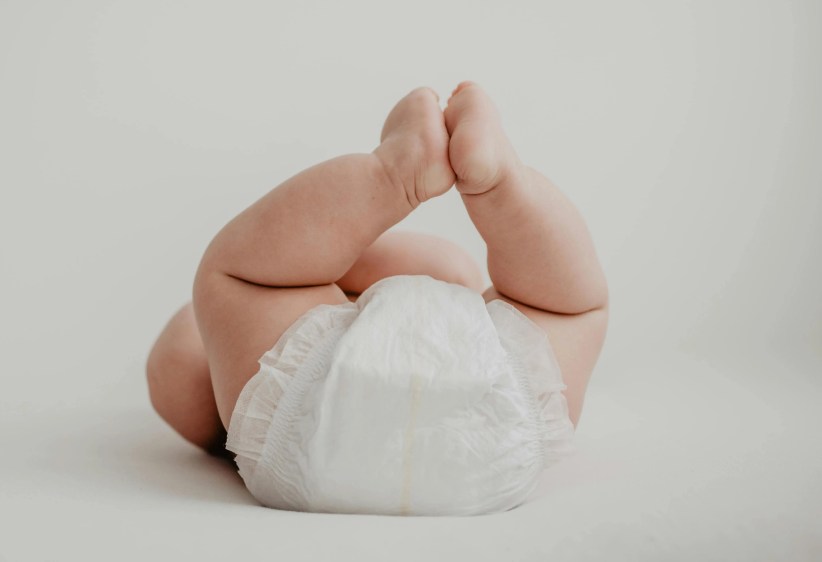 For many women, the onset of pregnancy brings, along with many joys and challenges, an innate desire to quest for knowledge. So it’s no wonder that pregnant women find themselves bursting with questions. From “Is there any raw egg in that dish?” to “Is it ok to have sex when I’m 36 weeks pregnant?” the topics that pregnancy calls into question are seemingly boundless.
For many women, the onset of pregnancy brings, along with many joys and challenges, an innate desire to quest for knowledge. So it’s no wonder that pregnant women find themselves bursting with questions. From “Is there any raw egg in that dish?” to “Is it ok to have sex when I’m 36 weeks pregnant?” the topics that pregnancy calls into question are seemingly boundless.
While the best plan is to find an OB-GYN who makes you feel comfortable and can answer most questions (and also to check out some of the great pregnancy books on the market), it never hurts to get some unexpected expert advice. So we turned to some of our favorite maternity mavens—including nutritionists, yoga instructors, and doulas—and compiled a list of under-the-radar nuggets of wisdom that are all easy to follow and don’t require a lengthy doctor’s appointment. So read on and learn something new, but remember the best rule of thumb (or rule of belly, if you will) is to always listen to your body. That’s one piece of advice that is crystal clear and totally timeless.
Sex: It’s not news that sex during pregnancy is actually totally natural and healthy—however, there often seems to be a nagging discomfort about it for pregnant women. There’s no need to let pregnancy press pause on your sex life, says Latham Thomas, founder of Mama Glow. In fact, she encourages expectant mothers to embrace sex during pregnancy. “The more good sex you have, the easier the labor and birth you’ll experience, because the muscles of the vulva, round ligaments, and uterus have been well trained for the ‘main event,’” Thomas explains. She recommends setting the mood and using touch (exploring the body’s many erogenous zones) and play (one part erotic pampering, one part steamy sex) as ways of “getting out of your head space and into your body.” And we having a feeling your spouse or partner might be a little more excited about helping you out with prenatal sex than, for example, sitting in at Lamaze class.
Bedrest: The practice of bedrest is a long standing one that is prescribed to many mothers without question or analysis, but more info is coming to light to show that bedrest might not be such a necessary fact of modern pregnancy. Susan Stratton, owner of Sage Spa in Brooklyn—which offers prenatal massage in addition to a varied menu of spa treatments—advises expectant mothers not only to explore the benefits of massage but the problems associated with bedrest as well. Stratton notes that a number of her prenatal clients are put on bedrest, but she finds conflicting research on the subject: “When you look at the research, bedrest is not shown to be any more effective than a woman just continuing her life as normal,” she says. And while bedrest is sometimes the right course, the negative side effects, like bone loss, should not go unexamined, Stratton notes.
Fitness: The question of how much exercise is the right amount is one that looms large, even for women who aren’t pregnant—making prenatal fitness even trickier to gauge. While overall fitness is of course important, it’s even more vital to focus on the prevention of injuries while pregnant. Prenatal yoga instructor Liz Buehler discusses the prevention of diastasis recti, a common pregnancy injury, resulting in a tear in the connective tissue in the middle of the recuts abdominus. While it’s normal for the belly to stretch to accommodate the growing child, one can prevent diastasis from occurring by doing crunches and engaging in other lighter ab exercises during pregnancy. Waiting until after the birth to check for diastasis is meaningless, Buehler explains, because “it’s not a muscle tear that can repair itself. Once it’s done, it’s done.” She also points out that the injury not only affects the look of the abdomen but can also affect a woman’s “feeling of being centered,” which can require long term monitoring and modifying in exercise.
“[To prevent diastasis] women should work more deeply from their core, keeping that navel to spine connection strong and solid, rather than overloading their core and letting their muscles punch out or ‘dome,’” adds Charlotte Butler Penenberg, owner of Pilates Studio Streamline.
Keeping in mind the prevention of injury and diastasis, many experts agree that both yoga and pilates are excellent choices for expectant mothers. Penenberg encourages her clients to continue their regular Pilates routine as much as possible. The same can be said for yoga. According to Deb Flashenberg, owner and director of the Prenatal Yoga Center, certain poses, especially twist-based poses, are to be avoided, but otherwise pregnancy shouldn’t be too limiting. “Poses that invite a softening to the pelvic region are great. You do not need to be limited to just seated or restorative poses,” she says.
Nutrition: Brooklyn-based nutritionist Jennifer Schonborn doesn’t beat around the bush: “Do you want your baby’s brain, nervous system, and liver to be made out of Chicken McNuggets or Skittles? Of course not, so it’s important to remember that your baby is being ‘built’ out of the foods that you’re consuming.” Her advice may read as common sense, but it’s important to keep in mind when atypical (and not always completely healthy) cravings come to call. Certainly, the occasional indulgence is permissible, if not encouraged, but in general it’s vital to take the “you are what you eat” mentality to heart as you eat for two.
And as a yummy bonus, expectant mamas can take note of little-known nutrition boosters, so it’s not all about avoidance. Flashenberg offers her praise of the nettle plant. According to Flashenberg and the research of teacher and writer Susan Weed, the nettle leaf is known to nourish mother and fetus, ease leg cramps, reduce hemorrhoids, and increase the richness and volume of breastmilk. “The nettle’s high calcium content lends itself to diminishing pain during and after birth,” Flashenberg adds.
Caffeine: Many a working woman has faced pregnancy with dread at the prospect of having to cut out coffee and caffeine for the duration. Fortunately, things aren’t so black-and-white when it comes to java consumption. Heidi Murkoff, celebrated author of the What to Expect When You’re Expecting series, is here to ease your fears with the fact that a cup of joe a day (up to 200mg) won’t harm your baby. “The catch,” she says, “[is that] while 200mg may sound like an open coffee bar, it’s equivalent to a tall (12 ounces) brewed coffee or two shots.” Still, for expectant mothers facing the potentially draining symptoms of caffeine withdrawal, this is wonderful news.
Oral Care: With all the care and attention to the body and inner organs, expectant moms should also be careful to heed their dentists’ advice to floss and brush regularly. Rosie Pope, star of Bravo’s “Pregnant in Heels,” maternity designer, and author of Mommy IQ: The Complete Guide to Pregnancy, is one of many experts to note the seriousness of gum disease in pregnant women. “Having gum disease while pregnant makes you seven times more likely to have a pre-term baby of low birth weight,” Pope says. Maintaining good hygiene and visiting the dentist regularly are the best ways to keep tabs on gum health while pregnant.
Cesarean Sections: For women anxious to deliver naturally and avoid a C-section, labor and postpartum doula Jada Shapiro offers a succinct suggestion: “Simply hire a midwife or doctor with a low Cesarean rate.” But, she adds, if you do end up having a C-section with a provider who has an overall low rate, it is likely the procedure was 100 percent necessary. One should note that natural, C-section free births come with their own set of concerns, especially perineal tearing. Stratton’s advice for avoiding this painful injury is to use warm compresses during labor.




















